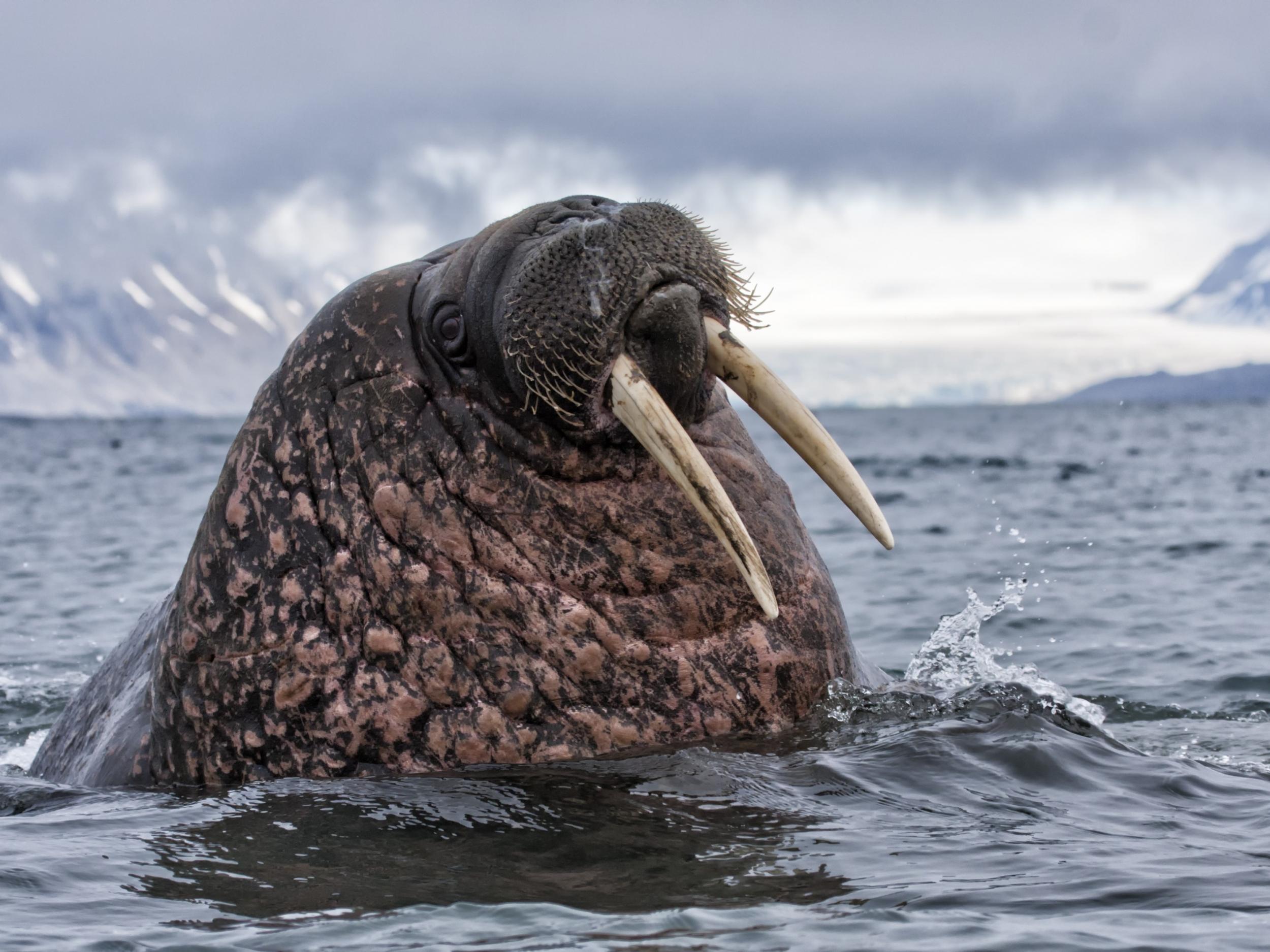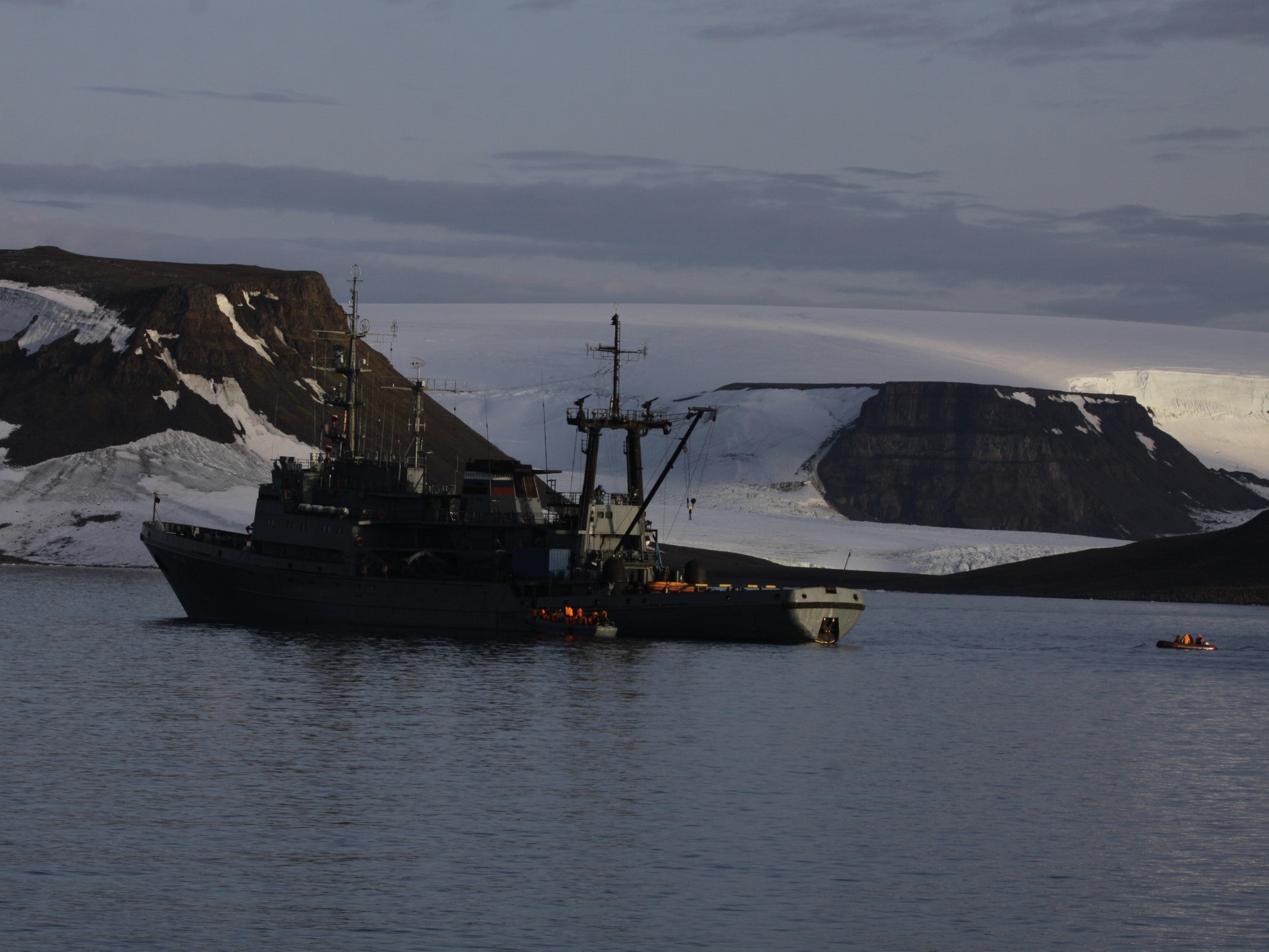Russian navy boat 'sinks' after walrus attack during Arctic expedition
Sailors and scientists on board escape unscathed from dangerous incident

A Russian naval boat has been attacked and possibly sunk by a walrus during a scientific expedition in the Arctic.
The sailors from the Northern Fleet were taking part in a joint mission with the Russian Geographical Society in Franz Josef Land, an archipelago just 900km south of the North Pole in the Arctic Ocean which is controlled by Russia.
As a group from the expedition attempted to land at Cape Heller in the territory in an inflatable boat, they were attacked by a female walrus.
“The walruses probably feared for their cubs and attacked the rubber landing craft,” a statement by the Geographical Society said.
“The boat sank, but a tragedy was avoided thanks to the prompt action by the squad leader. All landing participants safely reached the shore.”
The navy issued its own update, which confirms the walrus attack but makes no reference to the boat being sunk.
“During the landing at Cape Heller, a group of researchers had to flee from a female walrus, which, protecting its cubs, attacked an expedition boat,” the Northern Fleet Press Service said.
“Serious troubles were avoided thanks to the clear and well-coordinated actions of the Northern Fleet servicemen, who were able to take the boat away from the animals without harming them.”
The expedition attempted to retrace the steps of polar explorers from over a century ago who first tried to map out the desolate, freezing archipelago.
The Geographical Society said the walrus attack underlined how dangerous the region was for humans.

As well as dodging wild animals, the explorers also had to avoid storms and survive perilously low temperatures.
Most of Franz Josef Land is underneath glaciers and from October to February it experiences a 128-day-long polar night. Temperatures can reach as low as -40 degrees during the depths of winter.

The Geographical Society said “lingering northern winds” had driven more ice to the shore of the archipelago and many icebergs had now appeared in the narrow straits between islands, making sailing more difficult.
The main Russian naval vessel, the Altai rescue tugboat from which the smaller rubber boat attacked by the walrus departed from, remains in the Arctic with the scientists and sailors as they continue their expedition.
Join our commenting forum
Join thought-provoking conversations, follow other Independent readers and see their replies
Comments
Bookmark popover
Removed from bookmarks